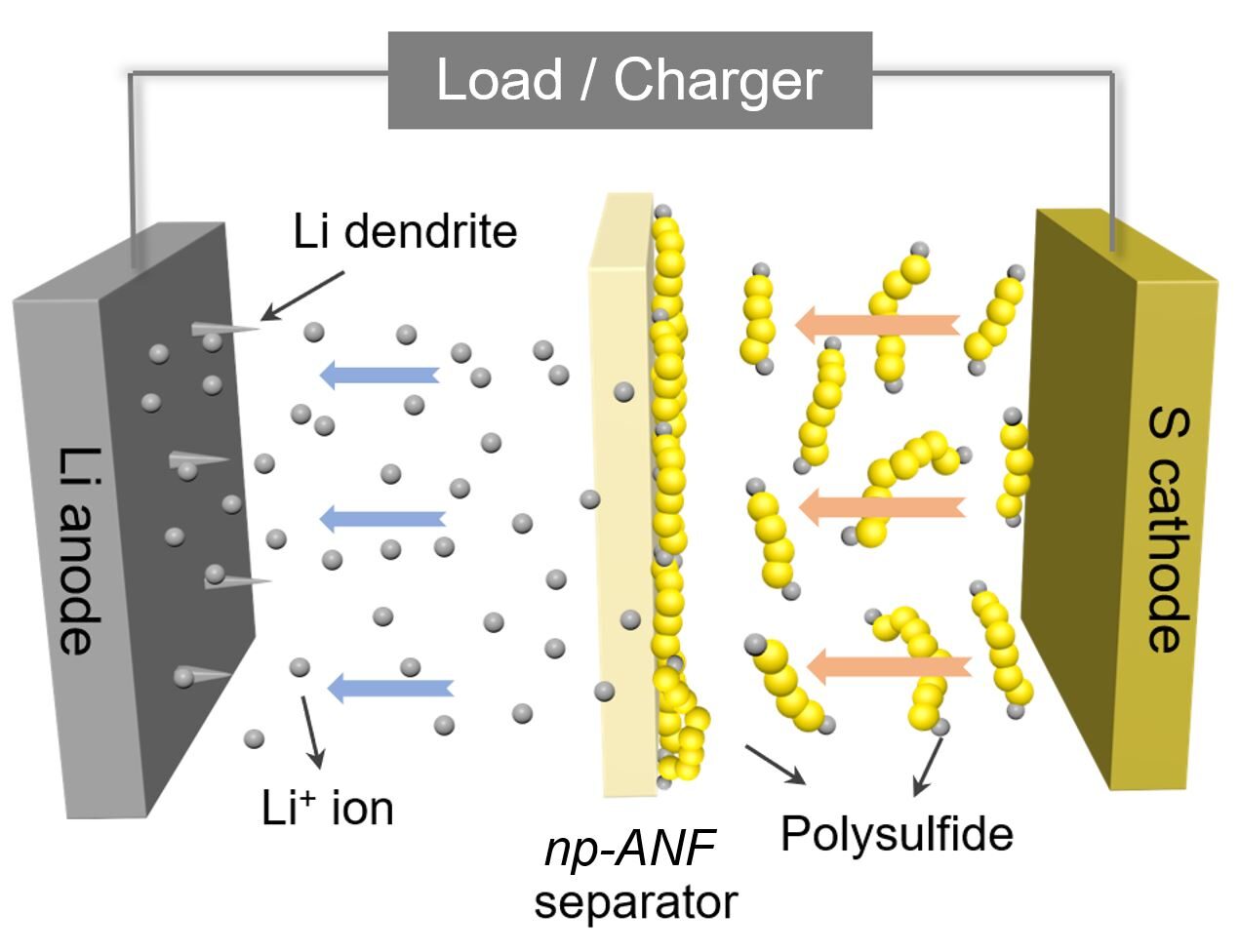Researchers at the University of Michigan have developed a lithium-sulfur battery which they estimate will be able to achieve 1,000 real-world cycles with fast charging.
In an article published in Nature Communications, the researchers write: “Lithium-sulfur batteries have a high specific capacity, but lithium polysulfide (LPS) diffusion and lithium dendrite growth drastically reduce their cycle life.” To combat LPS diffusion, the researchers designed cell membranes with ionic selectivity so that lithium ions can flow from the lithium to the sulfur and back while the lithium and LPSs are blocked. The researchers met the problem of dendrite growth with tough aramid fibers that stopped dendrites.
In addition to real-world cycles, the battery’s advantages include compatibility with the extreme temperature range of automotive conditions and a “capacity and efficiency approaching the theoretical limits.”
The cell membrane has been patented by the University of Michigan, and lead researcher Nicholas Kotov is building a company to commercialize the membrane.
Source: umich.edu

























